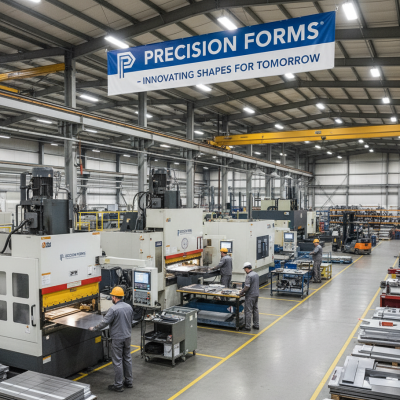As an operations leader at a small electrical manufacturing firm, I’ve spent years wrestling with the chaos of supply chains—tracking finicky components like capacitors and wiring harnesses, juggling unreliable suppliers, and ensuring compliance with standards like RoHS without breaking the bank. In 2025, the game has changed. With global disruptions still lingering and demand for custom electrical assemblies surging, the right tools aren’t just nice-to-haves; they’re survival gear.
For small manufacturers like ours (think 10-50 employees, annual revenue under $10M), supply chain tools need to be scalable, affordable, and laser-focused on pain points: real-time inventory visibility, automated procurement, production scheduling, and seamless integrations with accounting or CRM systems. No bloated enterprise suites that require costly implementation —just practical software that pays for itself in reduced stockouts and faster lead times.
In this guide, we’ll break down some of the top industry tools. These picks draw from real-world use cases in electrical manufacturing, emphasizing inventory management, supplier coordination, and light ERP functionality. I’ll cover key features, pros/cons, and rough pricing to help you decide. Let’s dive in.
What to Look for in Supply Chain Tools for Small Electrical Manufacturers
Before the list, a quick ops leader’s checklist:
- Inventory Tracking: Barcode/QR support, multi-location (warehouse, trucks, job sites), and low-stock alerts for parts like semiconductors.
- Procurement & Suppliers: Automated POs, vendor portals, and compliance checks.
- Integration: Hooks into QuickBooks, Shopify, or shop floor apps.
- Scalability & Cost: Starts free/low-cost, grows without ripping out your setup.
- Ease of Use: Mobile-first for field techs; no steep learning curve.
Now, the tools.
Lasso Procurement: Procurement-Centric for Parts-Heavy Ops
Lasso targets the procurement headaches of electrical manufacturing—vendor catalogs, bulk ordering resistors or connectors. It’s straightforward for small teams managing high-volume stock without full ERP overhead.
Key Features:
- Vendor management and PO automation.
- Project Management & post-award follow-up.
- Sales tracking and reporting dashboards.
Pros:
- Centralizes procurement intake requests.
- Automated 3-way match for invoices, receipts & POs.
Cons:
- Not a full ERP system.
Oracle NetSuite: The Scalable ERP Powerhouse
For growing electrical manufacturers eyeing expansion, NetSuite is the cloud ERP that ties supply chain to finance and production. It’s not the cheapest, but it eliminates silos—crucial when electrical BOMs involve hundreds of SKUs.
Key Features:
- Demand forecasting and real-time inventory across global suppliers.
- Work order management and shop floor control for assembly lines.
- Predictive analytics to flag disruptions in component supply.
Pros:
- Handles made-to-order electrical products with ease.
- Unlimited users in some plans, scaling as you hire.
Cons:
- Steeper learning curve and implementation time.
Pricing: Custom quote; starts around $999/month for basics.
NetSuite’s real-time visibility has helped similar firms cut excess inventory by 30%, a game-changer for cash-strapped ops.
Sortly: Visual Tracking for Field-Heavy Teams
Electrical manufacturing often means mobile crews pulling stock from trucks or sites. Sortly shines here with its photo-based, app-driven approach—think snapping pics of cable reels to track condition and location instantly.
Key Features:
- Custom folders/subfolders for organizing by job site or component type.
- QR/barcode scanning, low-stock alerts, and offline mode for remote updates.
- Built-in purchase orders and reports for inventory history.
Pros:
- No training needed; intuitive for non-tech-savvy techs.
- Improves job profitability by minimizing downtime—spot a missing fuse before it halts production.
Cons:
- Less robust for complex production planning compared to full ERPs.
Pricing: Free plan; paid from $49/month.
Sortly’s mobile magic ensures your team stays stocked on-site, boosting on-time delivery for custom panels or wiring kits.
Odoo ERP: Modular and Manufacturer-Focused
Odoo’s open-source vibe lets you cherry-pick modules—like inventory and manufacturing—without overcommitting. It’s a favorite for small electrical producers building modular devices, as it supports multi-level BOMs and quality checks out of the box.
Key Features:
- Real-time production tracking and mobile shop floor apps.
- Inventory integration with procurement for automated supplier sync.
- Customizable for compliance reporting (e.g., electrical safety certs).
Pros:
- Free community edition; affordable enterprise upgrades.
- Expands as you grow—add CRM or HR later.
Cons:
- Self-hosting requires some IT chops.
Odoo’s flexibility makes it ideal for discrete manufacturers, where custom electrical assemblies demand agile planning.
Wrapping Up: Streamline Your Supply Chain Today
In 2025, small electrical manufacturers can’t afford supply chain blind spots. Consider the needs of the business across various departments and align the needs with the features that each tool provides.
Get the White Paper: Streamlining Procurement Processes for SMB Manufacturers
Get instant access to our white paper on Must-Know Procurement Tips for SMB Manufacturers by filling out the form below.
Get in Touch
Learn more about Lasso supply chain solutions for SMB manufacturers
Please complete the form and we will be in touch as soon as possible.







